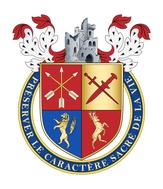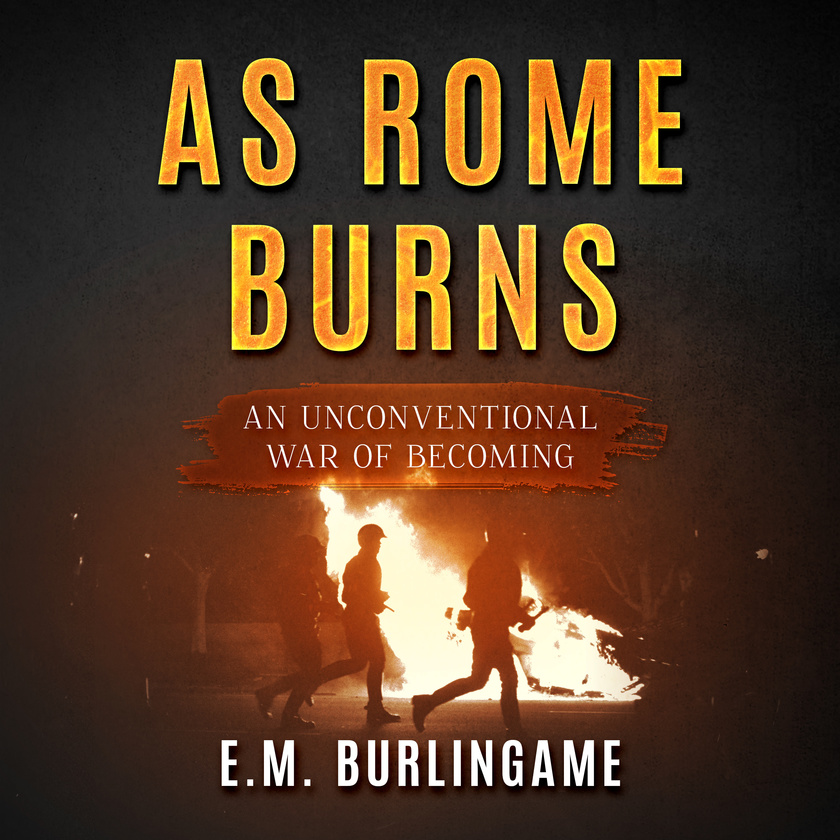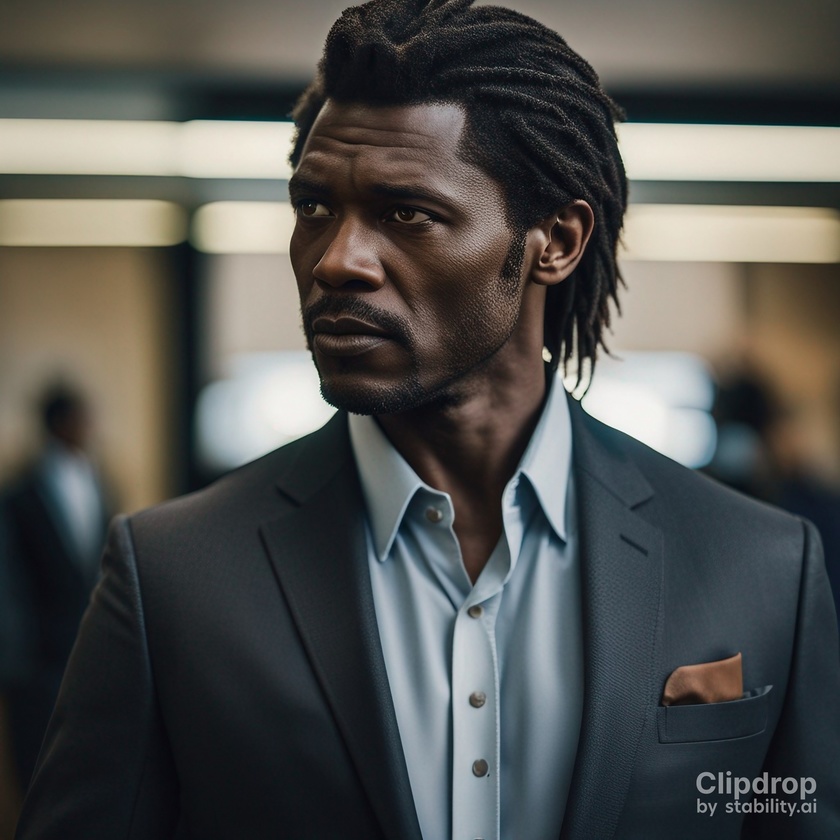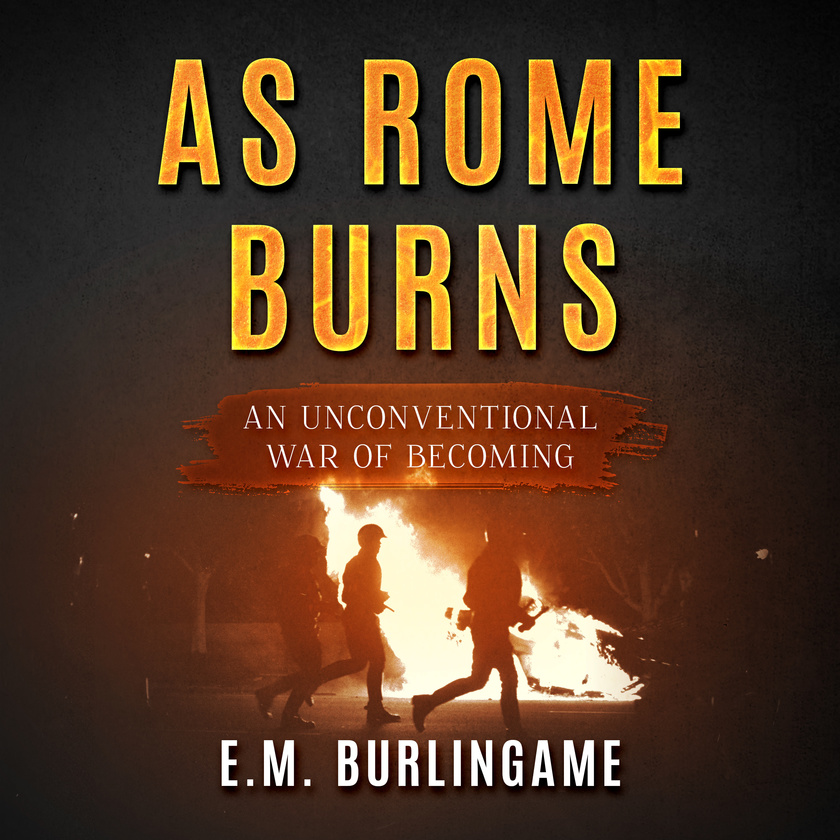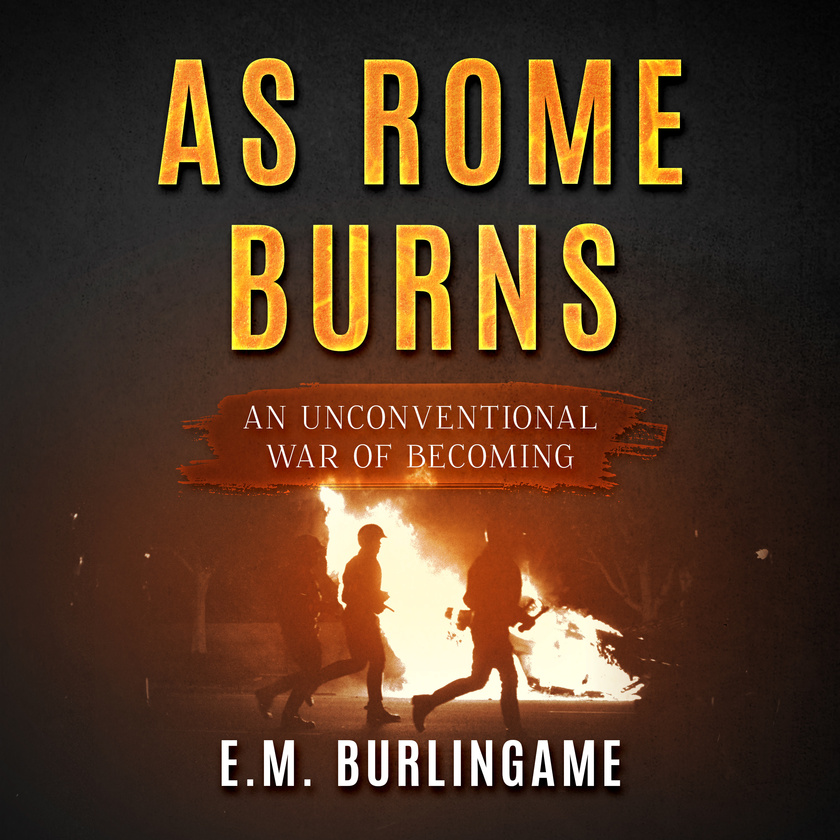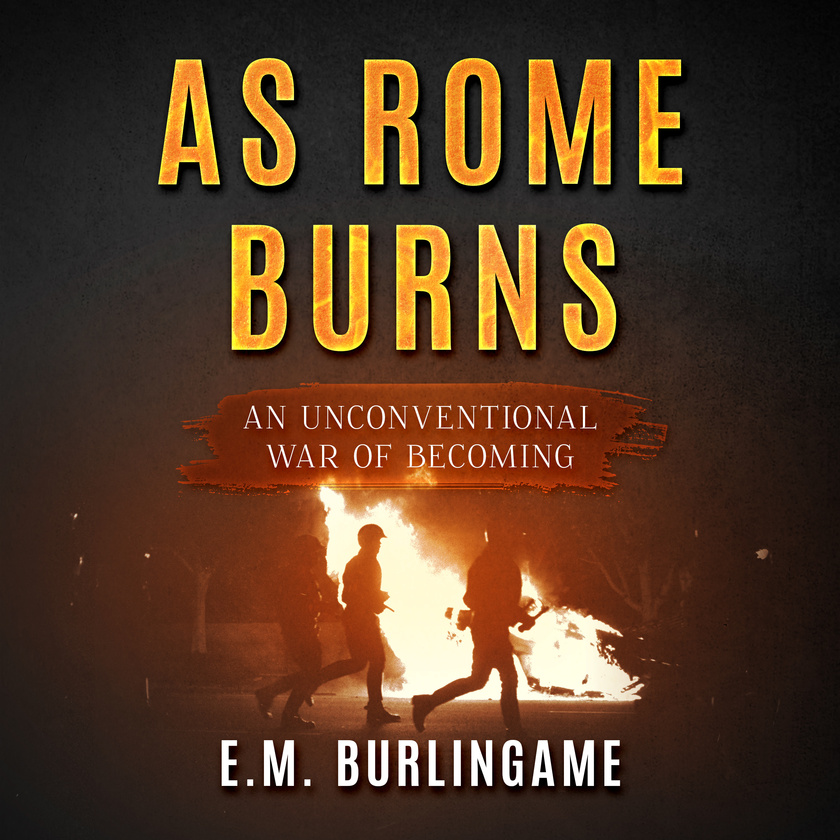The Eternal War is a religious war waged between the current religion of Bureaucratic Feudalism and what in the modern era is recognized as Classical Liberalism.
The Eternal War | Doctrine | Religion
The greying haired man crosses the foredeck with deliberate purpose, crossing to where Lord Commander Harrison is standing, taking in a few moments of the warmth of sun and light wind currently in the Eastern Atlantic. The man moves with a youthfulness belies the many injuries and years his body has sustained. To be quite frank, some of those very years and injuries on the other side of the battlefield from the this very Lord Commander.
Alfred Winston Emeril Harrison, Lord Commander of The Order, turns to look off starboard, as the small skiff that delivered this tall, aging and yet athletic Von Mises to the long teak deck of the Aquitaine, turns to return back to its parent vessel waiting off there on the horizon.
Closing his eyes, Harrison runs this man’s curriculum vitae through his mind once more. Not that there’s anything about him that can’t be brought to mind rather quickly, should need arise. Given that Bertrand Von Mises is a well-known entity. It’s still a good practice, for these sorts of meetings, to meditate a moment, clear the mind, to focus one’s full attentions on the conversation ahead. Also, best to cause the other to pause a moment, out of respect for your meditation, puts the rhythm and tenor of the thing in your own hands.
Bertrand had participated in twenty-three continuity operations on behalf of The Order, Harrison notes as information flows from memory, behind heavy lidded eyes. These had all been for different houses. This was not uncommon, The Order not seeking to establish recognizable patterns. Nor to take sides or select winners in the ancient game of great house competition. Opening his eyes and watching the man cross the deck, Harrison sees no signs of the scars and wounds Bertrand has earned in service to The Order. They are there, however. Instead, his countenance reflects only hard-earned confidence and that comfort with the world only those few warriors from within the old aristocracy seem to possess. Tall, with an aquiline yet strong bone structure, a pronounced long thin nose above a strong chin. Around the mouth there’s the slightest sign of unwavering resolve.
The Eleanor bloodline, again and again producing sons and daughters of this stature and capacity, Harrison cannot help but note.
Briefly a light breeze brushes across the Aquitaine from the East, ruffling the thin wind jackets of the men on her decks. Harrison is standing in the comfortable seating area just fore of the long salon, as Bertrand crosses fully to join him. Harrison’s all black outfit standing out starkly against the removable white and light blue stripped cushions, the light teak of the deck and the highly polished brass and hardwood table. The central main-mast towering above the seating area set up for this very occasion. Views of the Atlantic stretching in all directions around them.
Sitting down, Harrison says: “Thank you for finding the time for this. That you and Dlamini are both available for this effort, makes all of this far more likely to succeed.”
“I’ve never met Robert. Though I’ve heard he reminds others of me.” Bertrand says, taking a moment to look aft to the captain up on the flybridge, to the man standing beside him, looking out to where the skiff is receding.
Harrison, seeing where Bertrand’s attentions are momentarily, “In its time. Undoubtably, he’s one of our finest mentors. Though that’s to be expected, as you’re both adepts in the deep knowing.”
This always seems an open declaration of arrogance, regardless of who states it, no matter why. Though, the Lord Commander would never make such a statement out of arrogance, knowingly or not. Which Bertrand well knows and understands. It’s to do with the entire concept of Deep Knowing. All of his aristocratic ancestors rose up within him at the very idea. All the centuries of Noblesse Oblige! These very words, this very concept, Deep Knowing, is what had so enslaved humanity to the bureaucrats, their priests and to the many institutions of bureaucratic feudalist states throughout all of human history.
“It’s only the bureaucrats, the priests, the petty intellectuals who know the deeper truths, the science, reality, who is and who is not the enemy.” Such usurious and genocidal prejudice and arrogant blindness in this powerful belief held by all bureaucratic feudalists and their adherents, and the many petty nobles so dependent upon them. “Only we are capable of legitimate thought. Only we are capable and trained in the ways of complex systems, to power, necessary to possessing the Deep Knowing.”
How many hundreds of millions, billions, had been enslaved and slaughtered by this single phrase, this blatant lie of a concept. Vast legions throughout history, and yet still today. Bertrand had long thought. How much weakness, fear and inadequacy are contained within those who conduct themselves believing in such a deathly illusion. How much fear drives them to so deceive their fellow man.
Of course. Harrison had not used the term in this manner. Quite the opposite. As the son and sworn protector of, he’d used it in the manner of the great houses: ancient life and death knowing he and Robert alike had been raised, educated and trained in. The kind of knowing better preserved along the matrilineal lines and those who serve and secure them. As it’s always the sacrifice of the productivity of their wombs in which the real price is ultimately paid.
Harrison settles back into the seat cushions, eyes out across the foredeck to the foremast and furled rigging, to the gently rolling seas beyond. Allowing the younger Bertrand to sit. There’s nothing quite like the sun on a clear day this time of year to reset oneself, just west of the Azores. Harrison soaks in the rolling deck, sea and sun, his smaller and bulkier frame seated heavily, immovable against the gentle swaying of the Aquitaine. Though getting older, the Lord Commander’s appearance has not changed much in the last ten years, ten years of preparation and one conversation after another confrontational conversation after another, ad nauseum. There’s a marked thinning of his grey-brown hair, and more wrinkles around the mouth and eyes. There’s been no lessening of the calm power and intensity in his grey-green eyes however: this one is in command.
Bertrand had seen this pose and look before, too many times. He’s going to point to the seat to his immediate left. Which is exactly what the Lord Commander does.
As Bertrand sits, Harrison gathers his final thoughts, there’s far too much at stake to get any of this or any other conversation wrong. This one in particular. One misstep in assigning and setting into motion someone to assume their position and role on the board, and all could be undone.
While an unpredictable leader, these small patterns of behaviour the Lord Commander is displaying are reassuring. Something constant to hold to. Bertrand knows Harrison is not a man of God, not one to believe there’s any great being or organizing force holding humanity together, rewarding the righteous and punishing the wicked. Only The Order and its knights and dames provided any certainty in his world. If a thing needs doing in support of the mission of The Order, then it is done. No valence assigned as to good or bad, right or wrong. It simply gets done. Any purpose not in direct support of the mission, is suspect, if not outright deniable. All outsiders are not to be trusted, while those of The Order, even those staunchly set against the Lord Commander’s vision, are the only trustable resources.
Without looking at Bertrand. “In much of the 20th Century and now all of this 21st, more people have been killed in armed conflict not declared as wars than in all the centuries before in declared wars. More of the world’s populations now live in direct threat of their lives, from their own governments, from powerful transnational criminal and terrorist organizations, from the hubris of vast non-profits and their overly credentialed staffs and advisors and from financial institutions and governments fostering and driving movements and causes, regime changes. More than ever lived in direct threat during the so-called age of barbarism.”
“Civility is barbarism,” Bertrand responds. This being part of the deep knowing.
Now Harrison looks at his guest, seated in the spot exactly opposite what was indicated. Rebellion, is it?! “Indeed. Which means what, exactly?”
“Forced and jealously enforced civility denies the average individual the right and opportunity to defend themselves. Only the State has that permission in civil societies, and the state can and far too often does deny it to any and all it chooses, as it chooses. Emphasizing denial to any with the power to stand to the state.”
“That’s certainly it!”
“Humanity has become defenseless is what you’re saying, then.”
“At its very most basic, yes. It’s not that men have become weak and women insane, actually. It’s that their ability to act upon deep-rooted instincts of self-preservation are denied them, to such degree they’ve given up on reality as the only means by which to function at all.”
“Most would believe much of the blame is on humanity having given up its traditions, walking away from the hard-earned, long developed and proven conservativism and liberalism of their ancestors.” Bertrand looks up at the sound of a sheet slapping against the mainmast in the wind that’s risen up, but which doesn’t bother the two seated men.
Looking back from mainmast to Harrison, Bertrand states. “If they could physically defend themselves, they never would have given these up. These things go far too deep.”
“Where’s the direction this is leading?” Bertrand asks as he looks back across the foredeck to the sea and horizon beyond. “Does it bear import to the task ahead of us?”
“There are those who believe the only means by which humanity will break their bonds, is to reclaim the ability to protect themselves individually, through violence.”
Bertrand looks intently at Harrison, in obvious manner, as if to ask, “and?”
“What do you think follows, should humanity decide to turn the old machine off, or to break free and isolate themselves around their own machines?” By machine the Lord Commander, of course, means the shared regime and its many interdependent supports.
“Is that something could even happen? Can the ancienne réalité artificielle be turned off to make way for a return to a base reality greatly updated?”
“New balances of power around the world are being attempted, tested and established.”
“Yes, we all know this.”
“There are vast sums of government monies, stolen from their citizens futures, as well as large sums of family office, non-profit and institutional funds developing machines, machine intelligence, moving arms and power in every community of the world, establishing new bonds and relationships. Seeding and sparking the next generations of The Eternal War.”
“Of course. Proliferation of the old machine, sustainment of the old artificial reality is always sought by these types. These are the expected moves in times of great uncertainty.” Bertrand looking his old mentor in the eyes, those disconcerting ancient eyes colored, faded and tinted like the shell of an ancient sea turtle.
“I ask again, what happens when the old machine is turned off, the old system goes offline?”
“Without the new machine fully up and functional? Without massive and broad-spectrum enough updates in the Infinite Game already in place and growing?”
“Exactly so.” Harrison replies.
“Virtually all control mechanisms are removed. Rage and widespread violence ensue, many tens or hundreds of millions die within months. Many more in the years following. New tyrants emerge, as well as self-sufficient communities which are capable of providing for and defending themselves for many years, maybe even decades.”
“Would breaking the bonds of certain humanity-wide total slavery be worth the cost of those lives and all the destruction associated with?” Harrison prompts his former mentee.
Bertrand has no answer, none he wishes to share. And so, he doesn’t. Prompting Harrison to lean back, close his eyes, to take in a deep lung full of the sea breeze. “The sport of kings. We think we can escape it with our technological and social advances. But we can’t.”
Bertrand had firmly come to this conclusion himself, prior. He says: “Lord Commander, are you having doubts as to our mission?”
“No, not substantively. Not doubts. There are very real concerns, however. We think we’re operating independently, free of undue influence. But what do we far too often find?! That much of what we thought were our decisions were actually intentionally influenced by outside forces far beyond our control. To say nothing of the petty decisions we individually make out of our own personal struggles, conflicts and vendettas. And why? Because we’re far too close to and far too defensive of our comforts that others ultimately control. While we should like to believe we can achieve some form of control, a seat at the table. Seems the best we can achieve, is some form of a loose agreement about the world. Agreement which further enables those who in the end do make the decisions.”
“This is expedience. Power has always been this way.” Bertrand states, wondering where the Lord Commander is going with all of this.
Harrison motions to the man standing beside the Captain, the prearranged signal to have the crew bring food and drinks. “If we rely too much on the old forms, the old allegiances and alliances, The Order may very well finally meet its demise.”
“You well know I’ve little faith in the old ways and even less we can know what these old ways must and will become.” Bertrand responds.
“We each have weaknesses, vulnerabilities and flaws.”
“These also do not concern me.”
Yes, yes! Bertrand had always been irreverent and unpredictable. It was a trait shared by many of his Brothers in The Order. Outcasts from all the many organizations and institutions from which they had originated. Damn that independent streak so prevalent among those of the House of Eleanor! Bertrand had spoken it as a barb. One Harrison would not allow to disrupt his peace and connection.
There’s no rushing the Lord Commander when he’s moving through a thought space, when he’s assessing. Best to take the pauses in his conversation, when and where you can, take the moment to focus on your breathing, to find your own calm center. Not knowing how you might have your mind and being probed at any moment. Bertrand had learned early in his career as a soldier, to quickly drop into the flow, to remain centered regardless the chaos. The Order and the ordeal had further taught him how to completely disconnect, to let go at a moment’s notice, and to float freely in time and space.
Harrison is seeking something in him, probing, Bertrand knows. It isn’t a matter of what Harrison needs to see, but rather what he needs Bertrand to see within himself. It will require letting the barriers down, finding what is meant to be found and letting it go. If it wasn’t in his service record, which Harrison would know, it must be something from the tumultuous years before.
The earliest memories were not of mother and father, as other children seemed to have. Rather there was a man and a woman, to provide the appearance of family, to outsiders. But the first was there only for protection and the second only for caregiving. Their homes and lives were comfortable, everything taken care of, no hardships for anyone. It was a lonely life however, one devoid of deep human connection and warmth. A life of learning and isolation. Interrupted only by the tutors who began arriving very early in his life, to teach him many things far beyond that of other children.
When he was old enough to question the man, having realized quite early these were not in fact his parents, the only response he received was, “you’ll understand one day, why your father has done this. Till then, tell no one, study hard and prepare yourself.” And when he asked for what, “you’ll know that one day also.”
It wasn’t that the man and woman didn’t care for him as if he were their own. They did. But there was always a separation, a distance that could not be closed, between them. Years later he would come to understand the true meaning of loyalty shown by this mom and dad and why his father, surreptitiously, had put him in their care.
While he did not know many children his age growing up, not attending schools, moving regularly to different places in the world, his dad moving the family to pursue a new job, it was not a life devoid of joy and happiness. There was a great amount of play in the early years, physical skills-oriented play, thrill seeking and danger skirting play, martial arts, shooting guns, fencing, bow training, diving. Play and experiences only increasing his skills as he aged, moving on to learn to fly fixed and rotary wing aircraft, to drive many different types of cars and motorcycles under different circumstances from roads, to off-road to on the track. There had been the sea, life never being far from the sea, operating motor craft and always sailing. And always the tutors.
The man had been proud of him, of his fearlessness and willingness to learn new things, to take on any challenge. The woman had been proud also, though, through the years, she feared for his safety and often strongly disagreed with the man in private.
Rather fascinating how one’s mind and emotions work. He’d not thought of any of this in quite some years. And yet the memories and sensations were there as if they happened yesterday. Strangely, it comes strongly to him now, even when he was quite young, he’d recognized that while these were good, strong people. There was something tragic about them, having given up their own lives to secure and care for a child not their own, that never would be their own. While they had hidden it well, he could see, in the little things and in unguarded moments, that this hurt them, deeply. That they’d had to force themselves to remain detached and aloof, while still present.
Many years later The Order’s psychometrician had noted in her assessment that there were yet unresolved bonds and attachments with this couple, tangled and confused bonds and attachments that might never be detangled and undone. He knows it, Harrison knows it. Some suffering simply must be born. Used to make one stronger and more capable. This is the true nature of a human, males more so. The true test. It’s the burdens carried, which force through immense pressure, the formation of load bearing and energy dissipating structures within a man. These structures being the man.
This couldn’t be what the Lord Commander is guiding him to find, to reconnect with, to relive. There has to be more to this visit, here on the sea, abord the Aquitaine. So far removed from land, from other humans and the work. His dad and mom had been there, would always be there in his distant past. It isn’t this he is being set adrift to find.
There had been quite legitimate reasons for the subterfuge, for the life he had lived, for not having grown up with his biological father and his family, for not having been allowed simply to grow up with his biological mother. That part is well understood and accepted. What had been, was all that could have been. So, this was not the point of today’s dialogue and meet.
When they came for him, it was in the dark of the very early morning. Two heavily armed and armored men, in a blacked out up-armored vehicle. There was a woman with them, smartly dressed, an attorney, to express a father’s gratitude and to discuss details and provide dad and mom with their payment and instructions for their lives after this assignment. He had known the day would come, but when it did, he wasn’t ready to give up the only life he had ever known, the only people he had ever considered family. It had been twelve years and while it wasn’t a life like that of other kids his age, it had been a good life. A life he had come to think might never end.
It has to be something in this, that thing Harrison needs him to see. Something in the illegitimate descendant of an Eleanor mother and Garsenda father. A child hidden from a mother who had lost her mind and a father who was married to a dangerous family would brook no threat to his legitimate children. The whole experience had been immense, though powerfully subdued within his psyche, decades ago. He’d not wanted to go, but the man and woman had gone into the kitchen with the attorney and closed the door. The two large men blocking the door, staring at him. Letting him know, in no uncertain terms, there’s nowhere and no way for him to run.
One of the armed men stood aside as the attorney re-entered through the door to the kitchen, closing the door gently behind her. But not before Bertrand could see his dad and mom sitting at the kitchen island, their heads bowed, looking dejected, exhausted and broken hearted. “As I’m sure you’ve already worked out, we’re here from your father. We need to move quickly. He’s waiting with the plane.”
The last image he had, through the dark windows of the G Wagon, of the last house they had occupied, in the Austrian heartland, high in the mountains, was a lightless, cold and unalive building with the only two humans he had ever really known, sitting in the darkness. In that moment, he knew, there was a far larger world out there, a dangerous world, of power and wealth. A world not of emotions and emotional attachments, but a world required vast amounts of preparation and detachment from others. A world of unknowns. A world would just as well see him a failure, broken and dead than to see him a success, whole and alive.
The next six years would be much the same. Only with far more people. With more aloofness and outright coldness and hostility from his father’s family. More tutors, elite military schools. Constantly having to prove himself, to outperform everyone around him, so as to garner even the slightest of recognition from his father’s family, wife and three daughters. Though in quiet moments alone, his father would in his own non-verbal way, show his recognition for the hard work and successes of his now fully adopted son. Quite unlike the constant danger in every engagement with the woman who told him directly to never call her mother, from three sisters who saw this younger boy as a direct threat to their suzerainty, their hold over their father’s limited availability attentions. Other than his father, who only did so in private, it was his paternal grandmother was the one to show recognition that he was family. Though even this, aloof and maintaining a distance. So, after Oxford and double firsts in mathematics and economics, he would escape with his father’s blessing to the Royal Marines and on to the Special Air Service.
It was in the SAS he’d first met Harrison, his two levels above superior, would be approached by The Order, assessed, tested, vetted and knighted, after passing the ordeal. The psychometrists of The Order and his mentor, Harrison, had crafted his ordeal with great care and skill, ensuring the deepest parts of his mind, soul and heart were lain bare for him to confront. Giving him tools, powerful tools, with which to draw upon those early experiences to create structures within himself made him stronger, more inviolable, not incapable of but far less susceptible to the weaknesses of appetites, such as love and human warmth, all binding him at the cellular level up, to the mission and The Order.
He opens his eyes from the inward journey, to see Harrison, with those piercing eyes, looking straight into him. “It does no good to return to a past no longer exists. We must give energy only to what is. Only the now.”
This was not the first such admonition from Harrison. Nor was Harrison the only member of The Order to express this very same. The psychometrists had spent years working with Bertrand on this very thing. “In times of immense change, it’s not our past which can guide us. Only our present.”
“Yes, of course. I go back only to ensure I’m not bound by any part of my past,” Bertrand responds.
“The greater past, the past of humanity’s shared history, does show us the way through the conflicts of the change. Can give us examples of what can happen, what might emerge. The fullness of the worst.” Harrison, eyes glazing briefly, dropping into the flow, seeking gossamer threads.
“What is it gives you pause?” Bertrand asks his former mentor.
“Connection!” Like a koan, the word rips into Bertrand’s being.
Yes. He, like so very many other humans, struggles with connection to humanity. As a species, as heavily burdened specialists, we’ve lost that ancient connection to one another and the shared human past which had been since the beginning of time.
“I know my place and mission.” Bertrand responds.
“Ensure you retain your connections. Remember, it’s not that they must be perfect or even good. They are yours. Don’t forget who and what you are.”
I am what I am. Nothing more and no less. Thinks Bertrand, to himself.
“What is it actually giving you pause for concern?” Bertrand further prods his old mentor.
Harrison adjusts himself in the cushions of the seating area, needing to do so having been jostled slightly by a rolling wave that struck the bow at an angle. The food and drinks having arrived, he reaches for the glass of single malt scotch brought to him. They know him too well, his patterns. His modest indulgences.
“Now we enter the most delicate time.” Harrison states, looking at his former mentee.
“Yes, beginnings are the most delicate of times. But we are well into the beginning. Surely it cannot still be fragile.” Bertrand posits, taking a drink of the San Pellegrino the staff had provided him. Not being a drinker of beer, wine or spirits. Not anymore.
“It’s well underway, but not your part. Your part of the dance begins now. Far too many of our own have doubts about it. Strong doubts. What we’re embarking on may well change everything, lead to something we’ve never yet been.”
“Is there a start point for further research and contemplation, then?”
“Not at this time. You’ve all the pieces you require to move.” Harrison responds.
Well, that was that. Surely a change everything movement must be compartmentalized into many different needs to know. And, evidently, he didn’t need to know. He understood, from his years in the SAS and from the many years since in The Order. It’s the way of these entities, these institutions, given their nature. To be compartmentalized, to run teams and groups and efforts in isolation, one from the other. Never any of them to meet or cross. It’s always best to just not know. That way if one is rolled up and interrogated, even tortured in all the incredibly effective modern ways, there’s nothing one can give up but the limited amount they know. This had been the way of the SAS since its inception after the last Great War. It had been the way of The Order since its inception, eight hundred years prior. It had been the way of its predecessors for millennia before that.
“From that which you know of the design. Is there anything that concerns you?” Harrison asks.
Highly seasoned experts in conflict, in irregular warfare and all its many forms, come to develop an instinct for things. Instincts, which become even stronger and more reliable in those who’ve successfully gone through the ordeal, with ancient genetic historical data to draw from at the cellular computation level. Instinct is not something one thinks about. It’s an immediate, whole-of-system, high-coherency utilization signal. The signal coheres into a sensation and an image and you provide it. “The window to act is now. If we hesitate, even for a moment. The window will close and be lost forever.”
It's never good to push an aristocrat into instinct mode. They contain far too much epigenetic memory of ruling, of domination, manipulation and control, of brutality, to trust they won’t call upon these again. More than one mentee had failed the ordeal, having gone into megalomaniac and even God mode, in what was shown them about themselves. But that memory, that deeply embedded institutional knowledge contained within the DNA of every one of their hundred trillion living cells, is a resource that cannot be left unused. But carefully, oh so carefully. More than one tyrant had been born, tapping into instinct, into epigenetic memories of tyrant ancestors long gone to history. More the risk, as this one is descendent of two ancient lineages with many tyrants, fools and extraordinary warriors, leaders and rulers alike.
And what of humanity? Did it not also, all eight billion, possess the combined history of all human life? Of all life before, back to the very beginning. Was that not an immense store of experience, of extraordinary genes with extraordinary knowledge contained within them. At the scale of the cell, life had across four and a half billion years, experienced more environments, changes and gone through more adaptations than even the largest computer model and entire centers of supercomputers and even quantum computers could hope to represent. What’s the opportunity not discovered and realized in those genes? What’s the threat?
“When artificial status hierarchies dominate for any length of time. Genetic Despotism ensures only the moderately successful genes exist within populations.” Harrison voices aloud his thinking.
Bertrand hears the message he was brought here to hear. It is not The Order’s place to determine who and what should win. Only to maintain a balance. A balance ensures artificial status hierarchies, those which arise at different times in history, inevitably, do not last long. Not long enough to deny the species the rich full heritage of human biodata. Not long enough, all the truly exceptional, those emerging from known families and those from out among the unbounded masses, are wiped out. In humanity’s greatest need, when real scarcity and crisis emerge, it’s always biocomputation from out there, out in the world, from the most random of individuals and groups of individuals, that viable solutions are to be found. A feat no smart machine is yet capable, not even remotely capable, of matching.
“Lacking real connection, they’ll move ever more directly to dramatically reduce human genetic and biocomputational variance.” Bertrand responds. Which is what he was taken down this path to see.
“It’s already begun.” Harrison replies. Both know, Resentfuls destroy what they fear most. The genetic lines of others. The sheer power of Infinite Game evolution and improvement represented in human ingenuity and collaboration among vast orders of strangers, represented in the sheer scale of engagement out among the masses. Innovation and collaboration driven by the power of genetics and biocomputation at play, unrestricted in a species. Not the least, in an apex predator species. This is what they fear most. As it cannot be bounded, transactionalized, valued, priced owned and controlled.
“I begin today?”
“Soon. Very soon. Prepare yourself.”
“You know I came here fully prepared. Or you wouldn’t have sent for me.”
It’s an ancient movement, a pas de deux. The mentor shapes and guides the mentee. The mentee goes on to become the mentor. The student becomes the master only for the master to become once more a student. Everything in Bertrand’s life had prepared him for this, Harrison recognizes. But even so, it’s no small thing to send another human being to their destruction. Even when that destruction is more metaphor than physical. Particularly when there is such a long-established familiarity. Harrison knows he’ll have to be careful not to hesitate nor to restrain, when the time comes.
“Remember, the sport of queens supersedes the sport of kings.” Harrison says.
“Has it not always been so?” Bertrand responds, leaning forward to begin partaking of the eastern Mediterranean lunch had been lain before them on the polished, deeply lacquered wood table. Ah, but our own know us far too well. It’s a comfort. Comforts which both bind and threaten. Connections!
All rights reserved © Emerio Group, LLC 2023
